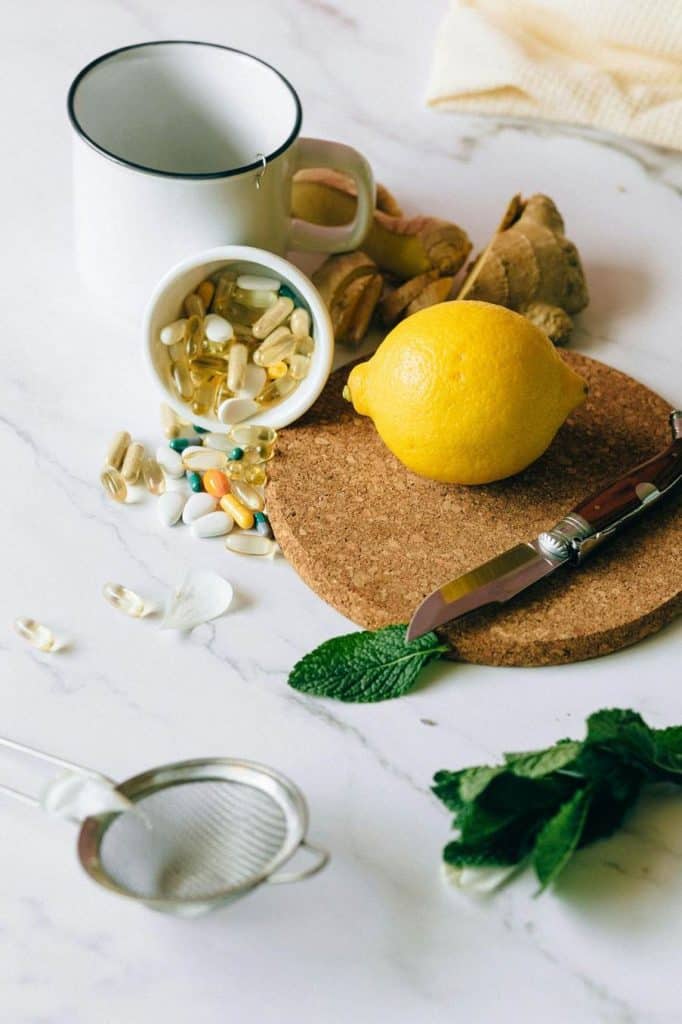5 Natural Ways to Support Prostate Health After 40

Prostate health becomes more important to men once they reach the age of 40. Prostate issues including benign prostatic hyperplasia (BPH) and the risk of prostate cancer are more prevalent as men age. There are also numerous lifestyle changes and natural remedies that can support a healthy prostate. In this article, I have offered five science-backed, natural ways to help support prostate health after 40.
1. Follow a Prostate-Friendly Diet
Emphasize Fruits, Vegetables, and Healthy Fats
Having a healthy balanced diet is important for prostate health. Make sure to select colorful vegetables, fruits, whole grains, healthy fats from sources such as avocados, nuts, and olive oil, and lean protein from fish, as they are rich in antioxidants and beneficial for minimizing cellular stress and inflammation, which can contribute to prostate issues.
Foods with Lycopene
Lycopene is an antioxidant primarily found in tomatoes, watermelon, pink grapefruit, and papaya. Several studies suggest that lycopene diets contribute to a lower risk of prostate cancer and can help to manage the symptoms related to benign prostatic hyperplasia. Cooking tomatoes increases how well your body can use lycopene, so tomato-based recipes will be beneficial.
Omega-3 Fatty Acids
Fish that are classified as fatty like salmon, sardines, and mackerel are good sources of omega-3s that are used to manage inflammation and have protective benefits against prostate disease. Sources of omega-3s from plants include flaxseeds and walnuts.
Limit Red meat, Dairy, and Processed Foods
High consumption of red and processed meats and full-fat dairy can increase prostate cancer incidence in men. Processed foods and added sugars can increase overall inflammation in the body, too.

2. Get Regular Physical Activity
Cardio and Strength Training
Staying physically active is strongly associated with lower risk of prostate issues, improved hormone regulation and healthier aging overall. Exercise aids in maintaining a healthy body weight (obesity is a risk factor for prostate disease), improves hormone regulation and lowers inflammation.
Aim for a minimum of 150 minutes of moderate-intensity activity (e.g. brisk walking; swimming) per week as well as at least two resistance training days per week. Pelvic floor exercises are also recommended to help with urinary and prostate function.

3. Consider Natural Supplements and Herbal Remedies
Many of the natural supplements and herbal remedies, including natural prostate health supplement options, are used worldwide for support to help with prostate health. One important thing to keep in mind is to reach out to a healthcare professional before using any new supplement especially if you have current health conditions or are on prescription medications.
Saw Palmetto
Saw palmetto (Serenoa repens) is most commonly used for men with BPH symptoms. There are mixed studies regarding its efficacy, but it’s widely accepted that many men improve their urinary function over time with paying attention to saw palmetto.
Pygeum
Pygeum africanum, otherwise known as African plum tree bark, does appear to have anti-inflammatory and urinary properties in some clinical studies. Pygeum is also thought to improve quality of life for men with BPH who are mild to moderately impaired.
Rye Grass Pollen and Stinging Nettle
Included, rye grass pollen and stinging nettle, we have some herbal therapies which contain components that have antioxidant properties and anti-inflammatory effect. Both options have demonstrated the ability to assist with BPH symptoms while also improving urinary health.
Beta-Sitosterol
This is a plant steroid that is found in a variety of food sources, that may relieve BPH symptoms, with an emphasis on urinary function.
Green Tea
Green tea forms an important part of antioxidant content in the body from catechins, which may support improvements to inflammation of the prostate, and general prostate health. Some studies even demonstrate a lower likelihood with epic prostate cancer diagnosis in men who drink green tea.

4. Maintain a Healthy Lifestyle: Stay Hydrated, Quit Smoking, and Limit Alcohol
Hydration and Toxin Clearance
Adequate hydration helps flush toxins from the body and supports urinary health, but avoid drinking large amounts of fluids late in the evening to minimize nighttime trips to the bathroom.
Reduce or Eliminate Tobacco and Alcohol
Smoking and excessive alcohol are linked to higher risks of prostate and other cancers. Quitting these habits can lead to significant improvements in overall health and prostate outcomes.
5. Focus on Preventive Care and Screenings
Schedule Regular Check-Ups
Early detection is crucial. After age 40, consult with your doctor about starting routine prostate health screenings, especially if you have risk factors such as a family history of prostate disease. The PSA (Prostate-Specific Antigen) blood test and digital rectal exam (DRE) are commonly used screening tools.
Monitor Symptoms
Pay attention to any changes in urinary habits, such as increased frequency, urgency, difficulty urinating, or bloody urine, and consult your healthcare provider promptly if you notice such changes.
Tips to Enhance Prostate Health:
- Manage Stress: Chronic stress has been linked to higher prostate disease risk; practice stress management techniques like meditation, yoga, or deep breathing.
- Maintain Healthy Weight: Obesity increases risk for prostate enlargement and related symptoms.
- Frequent Ejaculation: Some studies suggest that frequent ejaculation (21 or more times per month) may lower prostate cancer risk.
- Be Aware of Supplements: Use supplements judiciously as some, like excess vitamin E, may actually increase risk. Consult a healthcare professional for guidance.
Final Thoughts
Supporting prostate health naturally as you age, specifically after 40 years old is doable if you live a lifestyle that considers diet, exercise, stress management, regular health check-ups and potentially herbal supplements. Making these lifestyle habits will not only lead to improved prostate health, but will also mean an improved overall quality of life #AWESOME (around age 40 and above).
In all cases, it is always a good idea to seek the advice of your healthcare professional or qualified healthcare provider before starting any supplement or making any radical changes to your existing lifestyle and health behaviour, particularly if you have existing medical conditions or symptoms that may be of concern to you.
